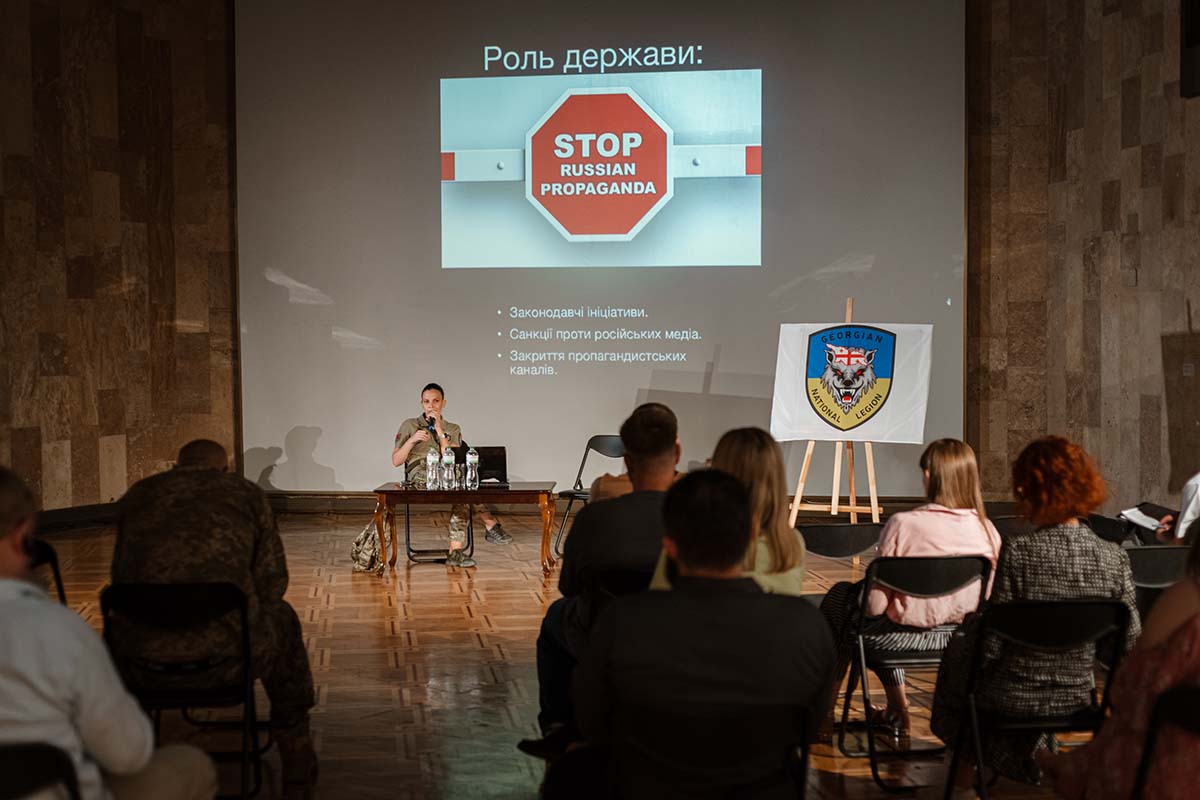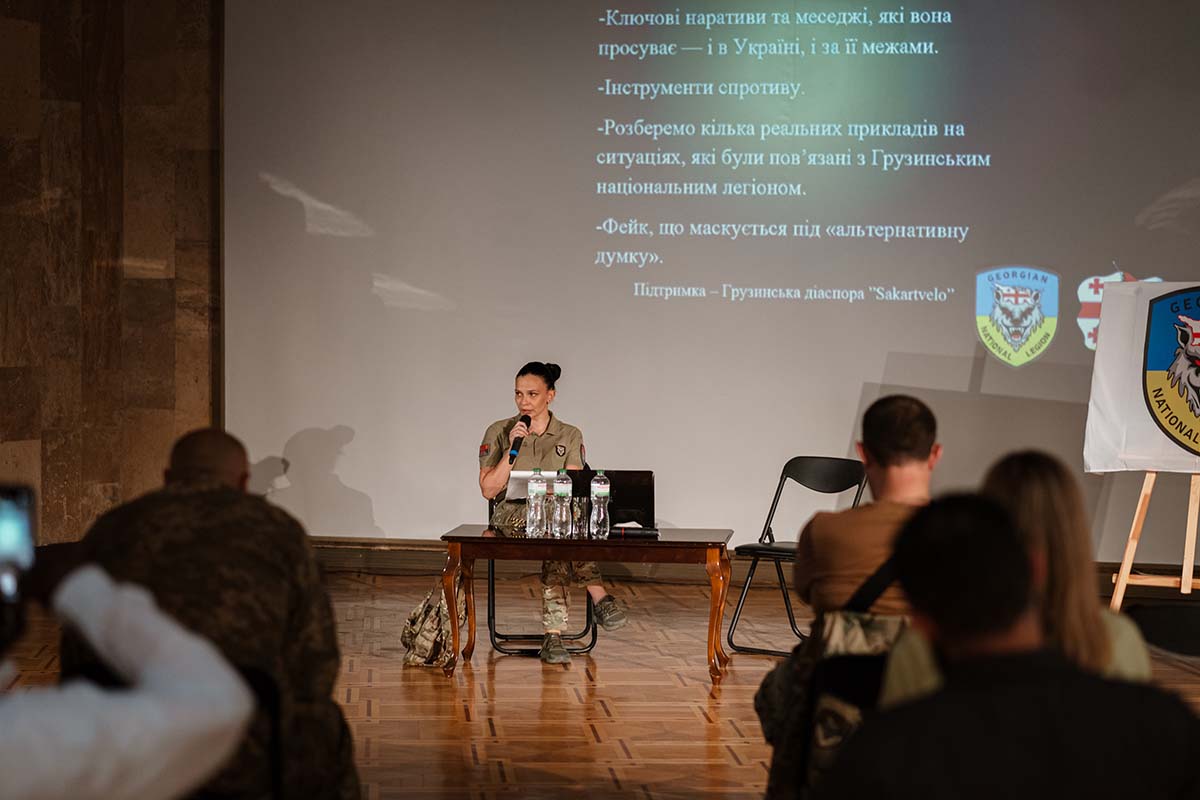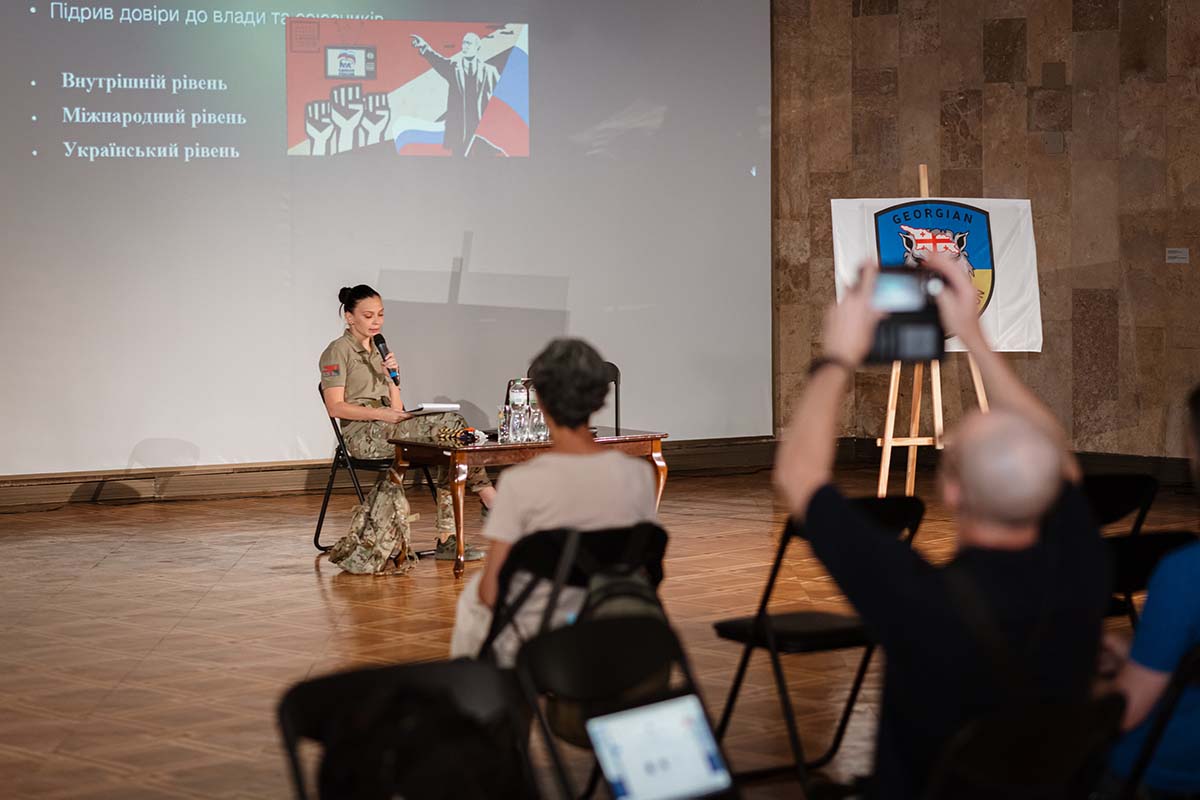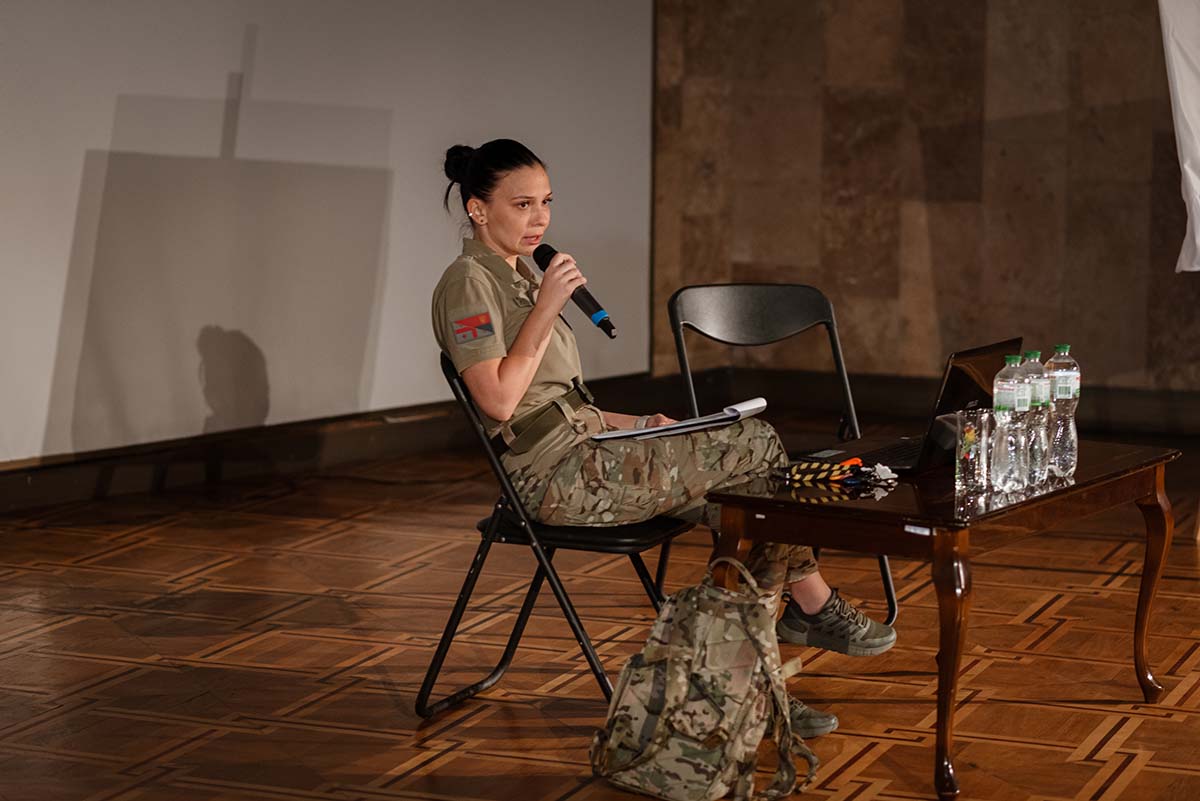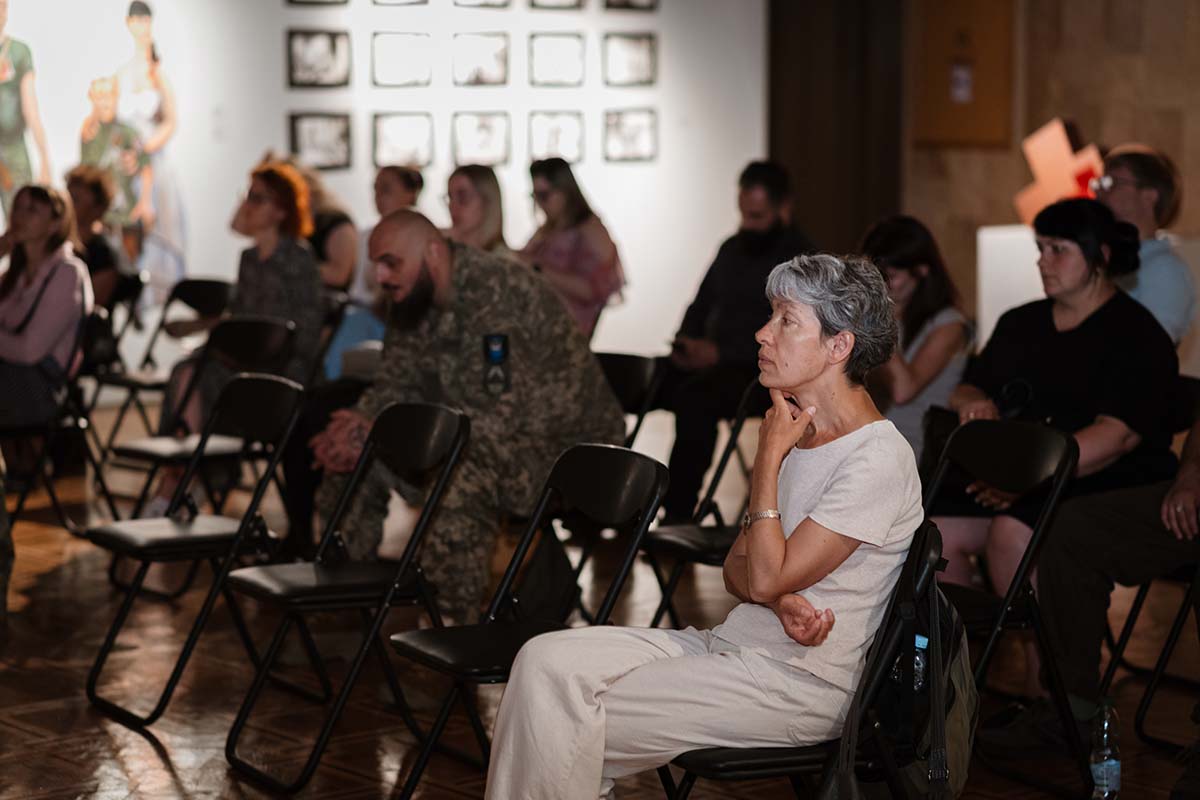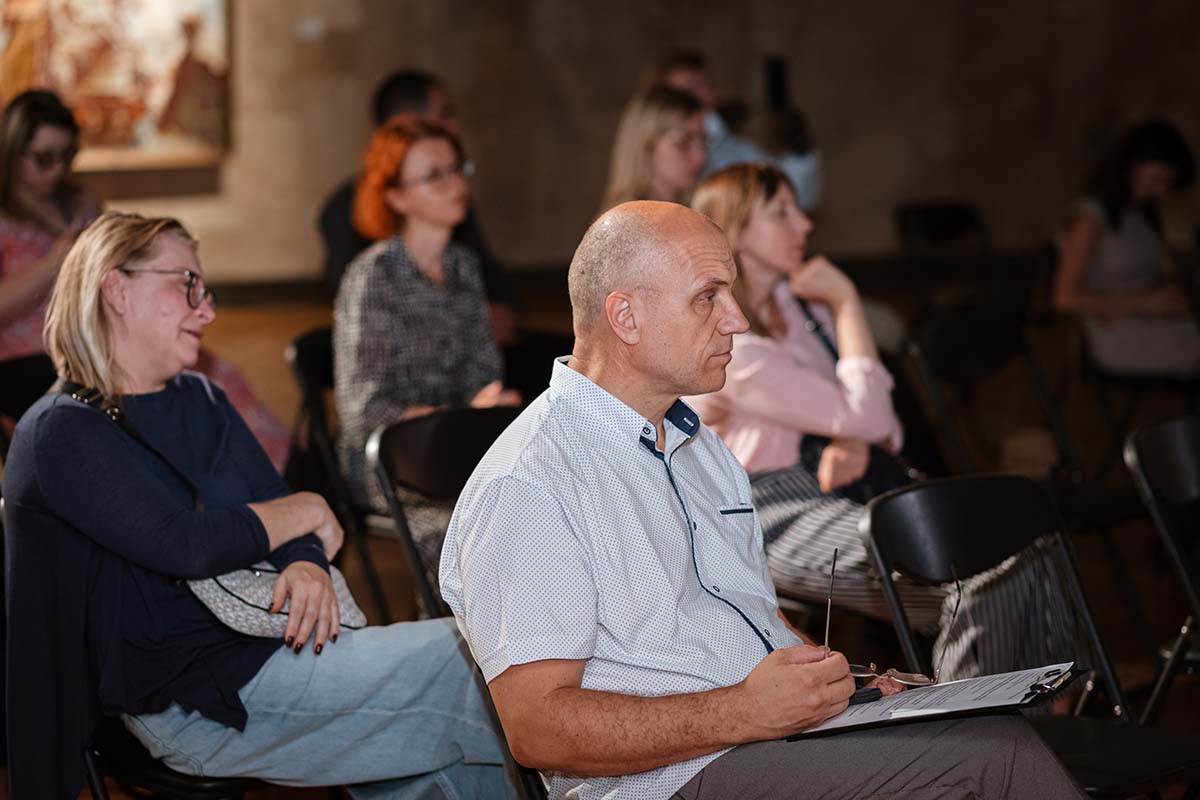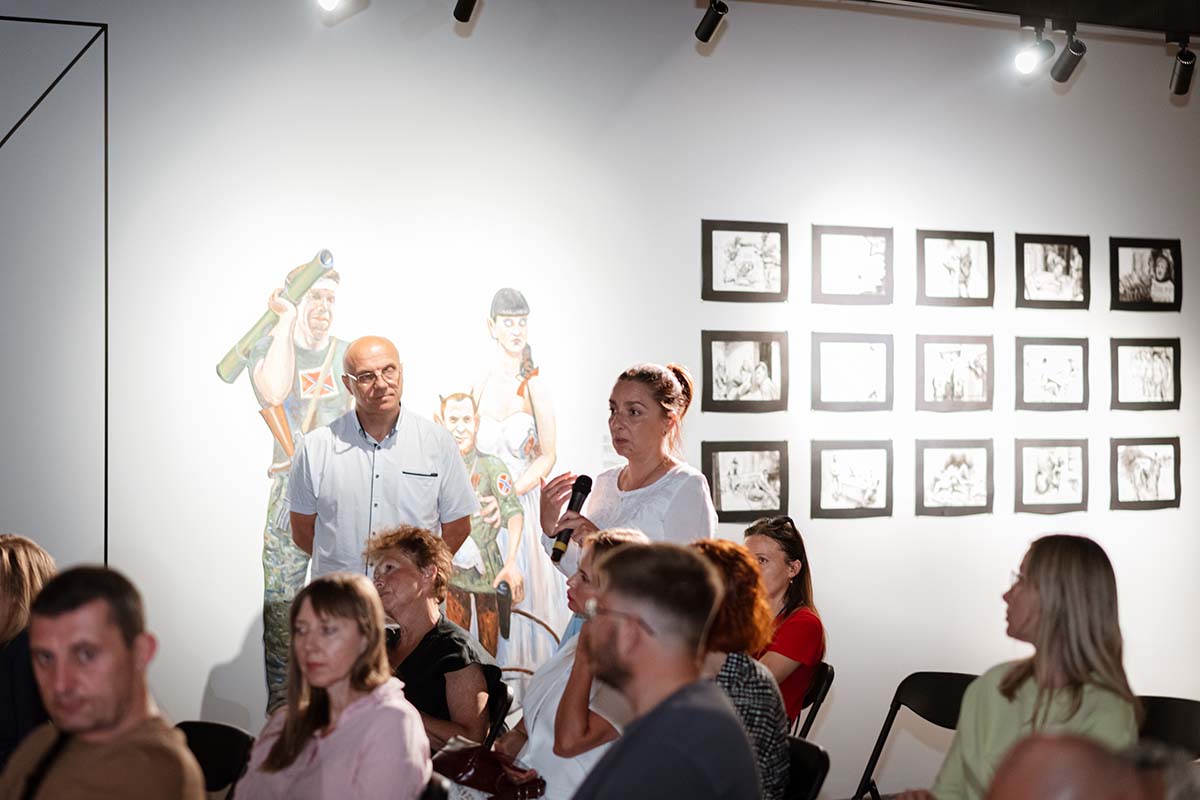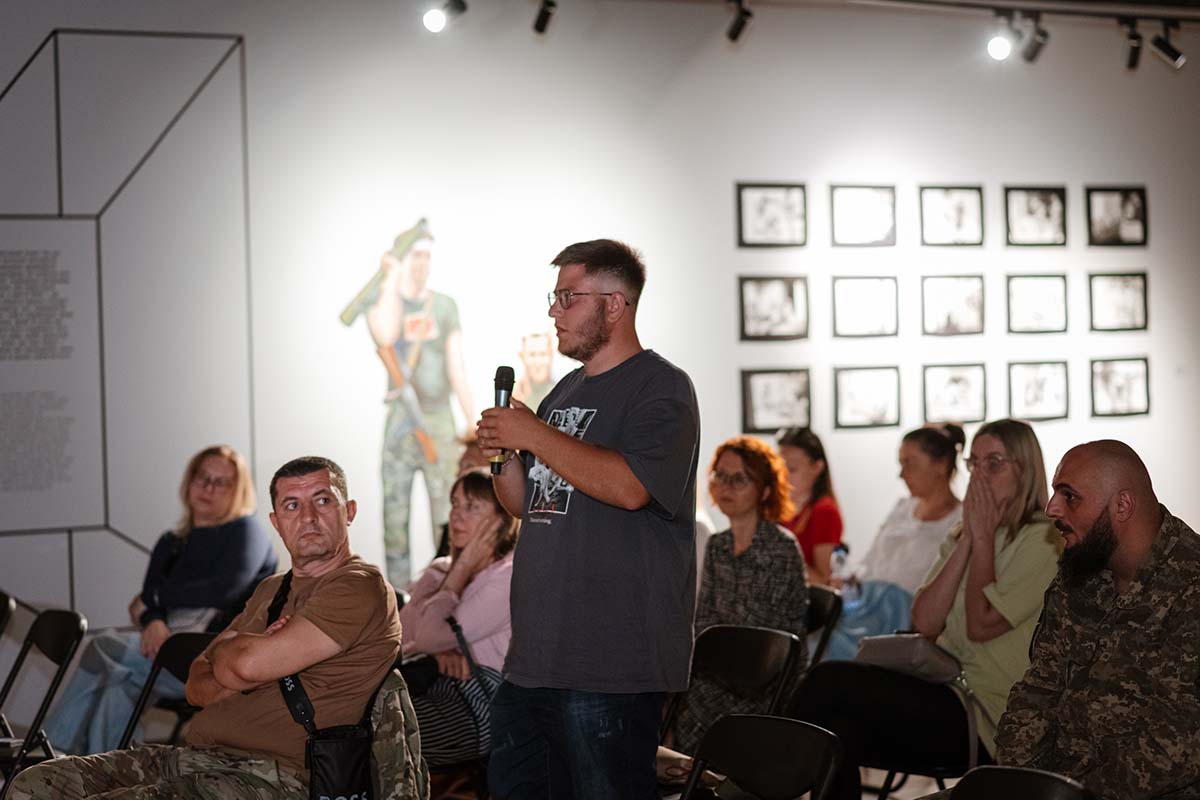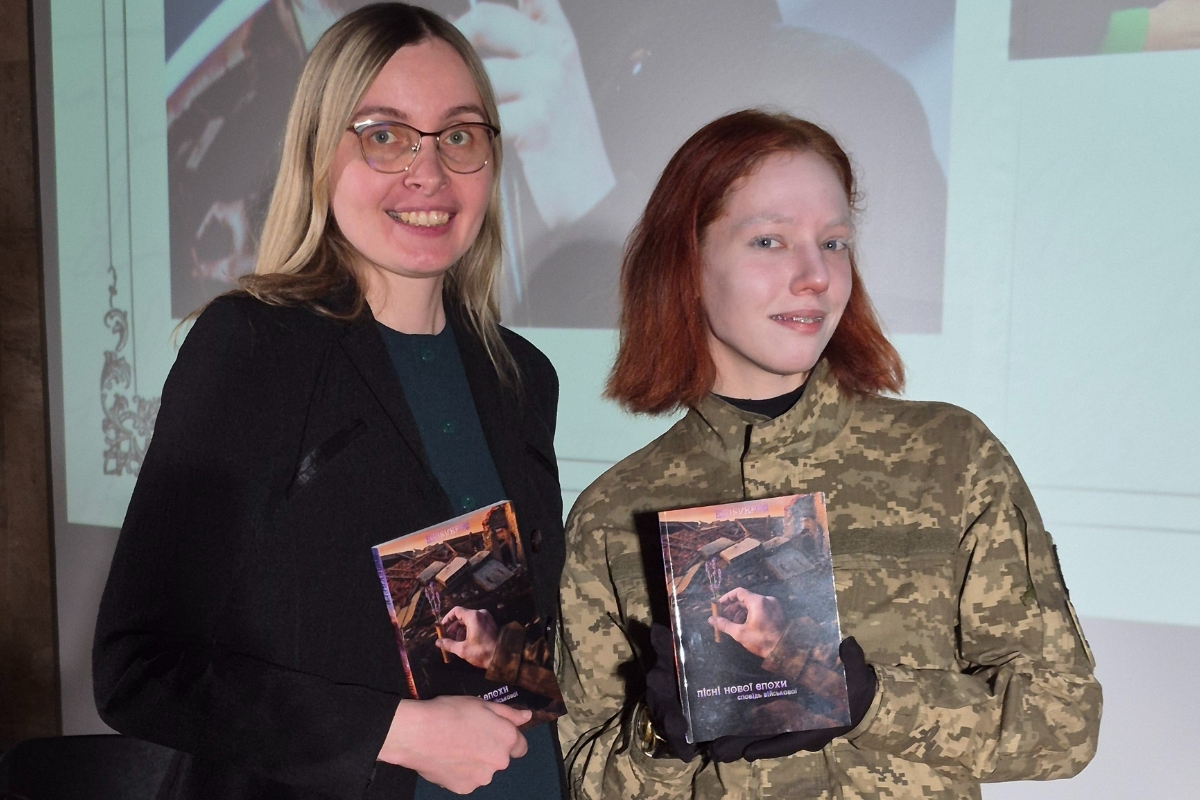The War Museum hosted a lecture-discussion on information security and countering Russian propaganda. The speaker of the event was journalist Alya Goldmeikhier, author of a documentary about the Georgian Legion and head of its press service. In her presentation, she outlined the main instruments of Russian propaganda: state television channels, a network of controlled Telegram channels, troll factories, and bot farms. She emphasized that propaganda is not a chaotic flow of messages but a centralized system whose goal is not only to justify aggression but also to reshape the worldview of its audience. “Propaganda does not simply transmit messages — it creates notions of ‘one people,’ a ‘defensive war,’ or the ‘futility of resistance.’ Its task is to demoralize, divide society, and delegitimize Ukrainian identity,” Alya Goldmeikhier stressed.
A separate part of the lecture was devoted to analyzing specific propaganda narratives that were disseminated with particular intensity after the start of the full-scale invasion in 2022.
Special attention was given to the phenomenon of half-truths. Examples illustrated how real facts are taken out of context and accompanied by manipulative commentary. Such messages, which appeal to emotions—fear, fatigue, or anger—are the most dangerous, as they undermine critical thinking. According to Alya Goldmeikhier, troll factories have built an entire industry around this: hundreds of operators, posing as “independent analysts” or “ordinary citizens,” generate content coordinated according to special “guidelines”.
The international dimension was also addressed: a significant share of bot networks target English-speaking audiences, aiming to undermine international support for Ukraine and to create a distorted picture of the war worldwide.
The moderator of the event, Serhii Siryi, Head of the Military History Research Sector at the War Museum, emphasized the importance of such initiatives for society: “Countering disinformation is not only the task of journalists or the military. It is a shared responsibility of all citizens. Conversations like this foster critical thinking, help identify fakes, and strengthen our defenses in the information space.”
